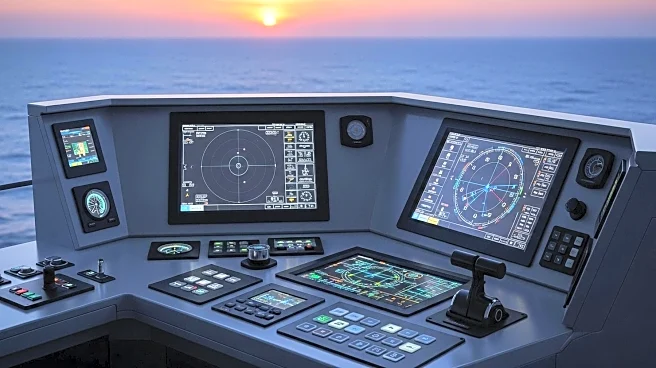What is the story about?
What's Happening?
Wärtsilä, a technology group, has entered into a ten-year lifecycle agreement with OPearl LNG Ship Management, a Hong Kong-based company, to enhance the operations of 14 LNG carrier vessels. The agreement aims to ensure maximum operational reliability through flexible maintenance scheduling and optimized time between overhauls. It includes Wärtsilä’s Dynamic Maintenance Planning solution and Expert Insight, a predictive maintenance tool that uses real-time data to detect potential issues. The vessels, equipped with Wärtsilä 34DF dual-fuel engines and Gas Valve Units, are scheduled for delivery between the third quarter of 2025 and the second quarter of 2027. This partnership is expected to support OPearl's operational requirements and delivery commitments.
Why It's Important?
This agreement is significant for the maritime industry as it highlights the growing importance of advanced technology and predictive maintenance in ensuring the reliability and efficiency of LNG carriers. By leveraging Wärtsilä's solutions, OPearl aims to minimize downtime and maintenance interruptions, which are critical for meeting tight delivery schedules. The use of AI-driven tools for maintenance planning represents a shift towards more proactive and data-driven approaches in the maritime sector. This development could set a precedent for other companies in the industry to adopt similar technologies, potentially leading to increased operational efficiency and reduced costs.
What's Next?
As the vessels are delivered and the agreement is implemented, OPearl and Wärtsilä will likely monitor the performance and effectiveness of the maintenance solutions. The success of this partnership could influence future collaborations and the adoption of similar technologies across the maritime industry. Additionally, the integration of AI and predictive maintenance tools may prompt other companies to explore innovative solutions to enhance their operational capabilities. Stakeholders will be watching to see how these advancements impact the efficiency and reliability of LNG transportation.
















